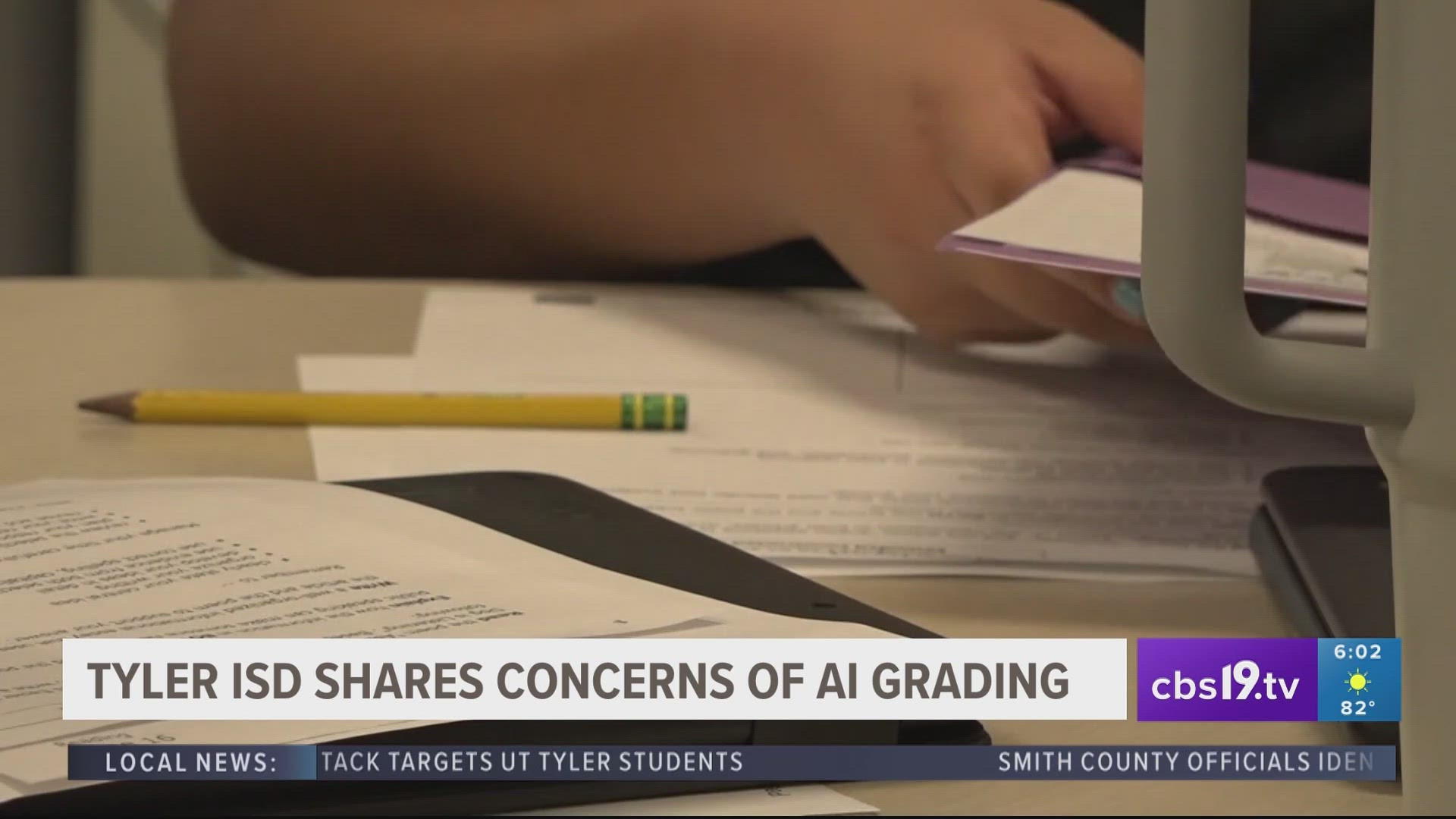TYLER, Texas — Students across the state are beginning to take the STAAR test, and this year, changes are happening to how those tests will be graded. Instead of a person grading open-ended questions, artificial intelligence (AI) will grade a majority of these type of questions.
Texas Education Agency said the shift to using AI to grade portions of the STAAR test comes down to saving money. Last year, the STAAR test was redesigned to have more open-ended questions in hopes of better reflecting how kids actually learn in the classroom.
According to the Texas Tribune, the agency would save around $15 to $20 million each year by having AI grade open-ended questions instead of having a person go through each written response.
Tyler ISD Superintendent Marty Crawford isn't opposed to the change, but he does have some worries.
“I understand the efficiency in it. I understand some of the error that can be taken out because the human function that we're removing from into the computer age, the age, but at the same time, this shift overnight and the impact it's going to make and the accountability system is concerning,” Crawford said.
Crawford added that while Texas has made changes in the past, this one feels rushed. He compared it to changing the rules of a sports match midway through the game.
“We've always had great strategy, to not just ease into it, but to stair step our way into where we are wanting to take our students," Crawford said.
Kevin Malandruccolo, testing coordinator at Hays CISD in Central Texas, explained how the AI system works saying, “the scoring engine is programmed by the TEA, by like around 3,000 responses and they train the system to score the responses appropriately.”
Once Tyler ISD gets the scores back, Crawford said they'll adjust if they are still facing challenges.
“We will make sure that we adjust our curriculum and instruction in the future months, in the future years to make sure that our kiddos are getting on track,” Crawford said.
It is important to note that not all tests will be graded through AI. The TEA said about a quarter of student's test will still be graded by a person, and the system will also flag answers it's unsure of for people to review.
“We've got some smart kids in Tyler ISD, I have full confidence they're going to be able to compete on the assessment,” Crawford said.

